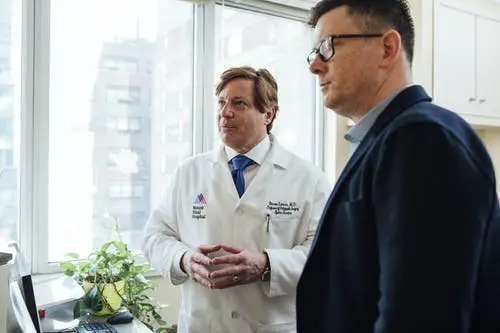The use of hired-gun experts has created trials that are too long and expensive, Barrie-area personal injury lawyer Steve Rastin argues.
"A personal injury trial in British Columbia usually takes about a week, while in the United States they are done in three to four days," says Rastin. "In Ontario, it can take three to six weeks, which is a considerable cost for everyone involved." He says much of the" time spent in personal injury trials relates to the requirement in motor vehicle cases that a plaintiff must prove that their damages meet the 'threshold' by showing that they have sustained serious and permanent impairments of an important physical, mental, or psychological function. The plaintiff who doesn't convince the trial judge that they cross the threshold will have their claim dismissed and will be ordered to pay legal costs, he says.
"We're the only jurisdiction in the world with a threshold like this," Rastin says. "This is a direct result of the no-fault system brought in 25 years ago and the Band-Aids that have been applied ever since." We really need to simplify our system, and I hope the new government in Ontario will see an opportunity to fix this," he says.
Rastin says an entire industry has sprung up to provide expert testimony on whether a plaintiff does, or does not, meet the threshold, and this makes trials in Ontario a lot longer.
"We've made it clear in the rules that an expert, hired to give testimony as to the extent of the injuries, is not to act as an advocate for the victim," he says. "As such, there is a group of experts whose entire livelihood revolves around giving evidence as to the extent of injuries in court." Getting the court to accept not just the credentials of the witness but their" testimony then becomes a battleground in the trial, he adds.
"The judge's role is to play gatekeeper, to decide whether to admit the expert and testimony or not," he says. "The question comes down to who is an expert and how should we use their testimony." Attempts were made to fix some of these problems when Rule 53 of the Rules of Civil Procedure was introduced in 1990.
"It was well-intentioned, but unfortunately it hasn't worked," he says.
Because of the way the courts have interpreted this change, there has been a proliferation of hired gun experts who are limited to what they can address, Rastin says. An orthopedic surgeon's testimony might not be able to address the issue of pain, for example, because he or she is not qualified as a specialist.
"As a result, counsel brings in all these professionals because they feel constrained and fear their expert is going to be limited as to what they can testify to," he says, adding judges are starting to notice the issue here as well.
For example, Rastin says Superior Court" Justice Mark Edwards wrestled with the issue of expert witnesses and trial complexity as far back as 2014.
"Trial judges are constantly reminded about the gatekeeper function which we must perform when dealing with the evidence of experts," Edwards wrote in the" decision. "We are also constantly reminded about how experts have, in many respects, become the 'life-blood' of personal injury litigation. The facts of yesterday's motor vehicle claim are no different than the facts of today's motor vehicle claim. A broken bone 25 years ago is the same broken bone today. A whiplash injury 25 years ago is the same whiplash injury today." The issue, wrote Edwards, is that expert witness battles are prolonging what should be simple matters.
"The biggest difference in trials today is the time now required to try a personal injury claim that 25 years ago took four or five days," he wrote. "The same trial today is now four to five weeks. Much of the blame for the length of trials today are the experts called by both the plaintiff and the defence bar. In many cases, this evidence is both reasonable and necessary.
"However, where there are treating doctors, many of whom are more than qualified to give opinion evidence (provided the provisions of Rule 53.03 are complied with), it is difficult to understand why a medical-legal expert is required as well," he continued.
Rastin says Rule 53 needs to be strengthened, expert reports should be much more concise, and treating doctors should be given more leeway to testify.
"The best person to determine what's going on with someone is the treating doctor," he says.
Expertise.
Share
Subscribe to our Newsletter

